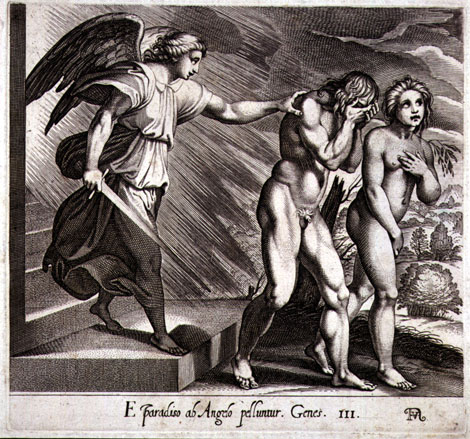Miracle Plays and Moralities and their importance in the history of English Drama:
The English Drama is Catholic in origin as it is in the Church and its liturgy that we find the stimulus which led to the rapid rise of native drama in the Middle Ages. The original purpose of Christian drama was to bring forward a sort of living picture book for those to whom the Latin of the liturgy was unintelligible through the Miracle Plays. Gradually the Moralities and Interludes evolved as further advancements which paved the way for the earliest dramas. The stage was set for the proper flourishing of this literary genre in the great Age of Elizabeth.
The Miracle Plays which were based on the Biblical stories and the lives of the saints had their formal beginnings in the Latin Liturgical enactments of the Church such as the Quem Quaretis performed on Easter and other Biblical stories from the Old and New Testament. Gradually, the clergy started losing control over the production of these plays, vernacular started usurping Latin as the tool of deliverance and lay actors began taking the place of clerics as performers. In quest of more space and freedom from church jurisdiction, the organization of these plays shifted from ecclesiastical hands to the trade guilds which were wealthy and keen rivals in public show. By the 14th century, complete cycles of plays, covering the history of the world from the Creation to the Judgment evolved. *(Each guild took on a separate episode from a cycle which suited its own interests. Thus the Water-leaders and drawers of the Dee performed Noah’s Deluge which the Ironmongers enacted the crucifixion.) The church’s disapprobation was soon attached to these plays because of the deterioration in their religious significance but in spite of that, these plays flourished as a means of edification and amusement with the development of Town life. The greatest stimulus to non-liturgical religious drama was provided by the institution of the Feast of Corpus Christi. This feast which was observed in England from 1311 saw each guild staging its play on a pageant wagon through the streets from early morn till the failing of the day-lights. Every town had their cycle of plays, of which only four are extant – a) Chester Cycle b) York Cycle c) Wakefield and d) Coventry. *(The Chester cycle is the oldest with 23 extant plays primarily dealing with the salvation motive in eight </span<>line stanzas. The York Cycle has 48 episodes that follow the Biblical narration with apocryphal legendary. The Wakefield cycle comprises of 32 plays having pungent humor and realism. The Coventry consists of 42 plays with theological passages which are apt commentaries on popular comic figures such as Herod, Pilate, and Pharaoh.) Much appreciated are the York cycle’s Butcher’s Play of crucifixion and Wakefield Second Shepherd’s Play. Stylistically, the plays of these cycles are widely differing. All are predominantly in iambic verse with elaborate metrical pattern and good use of alliteration.
The Morality Plays of the 15th and 16th centuries which registered a further advance were allegories cast in the mold of a play. They were partly an independent growth and partly a development of the didactic side of the Miracle Plays. In such plays, virtues and vices were presented on the stage as allegorical creations. Abstractions such as Justice, Mercy, Gluttony, Death and so on were its commonest characters. The Castle of Perseveraunce is a spectacle with a cast of thirty-six actors which dramatized the life of humankind from birth to death with a tournament of virtue and vice, where virtue emerged victoriously. Mankind and Everyman showed lives of representative humans in dialogue with characters such as Fellowship and Good Deeds.
The significance of the Morality Play is immense as it represented characterization in Drama in its embryonic form. In these plays, we see the beginning of the tragic soul-struggle which became a marked characteristic of the Shakespearean tragedy. The Miracle Plays were equally important as it is in them that English Drama finds its roots. They were not just a popular source of entertainment but they also made the Biblical stories more widely accessible. In the Miracle plays and Moralities lie the germs of regular comedy in characters such as the Herod, Noah’s wife, and Tituvill. These plays were the raw materials that lay at the hands of Shakespeare and his contemporaries and after centuries of slow ripening, the harvest of English Drama came in the Age of Elizabeth with a wealth and excellence of fruition that is one of the marvels of our literature.
Some online learning platforms provide certifications, while others are designed to simply grow your skills in your personal and professional life. Including Masterclass and Coursera, here are our recommendations for the best online learning platforms you can sign up for today.
The 7 Best Online Learning Platforms of 2022
- Best Overall: Coursera
- Best for Niche Topics: Udemy
- Best for Creative Fields: Skillshare
- Best for Celebrity Lessons: MasterClass
- Best for STEM: EdX
- Best for Career Building: Udacity
- Best for Data Learning: Pluralsight
















